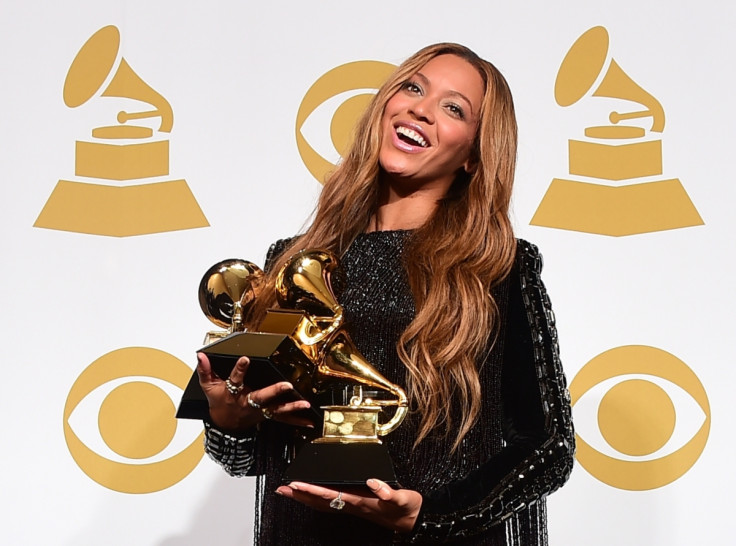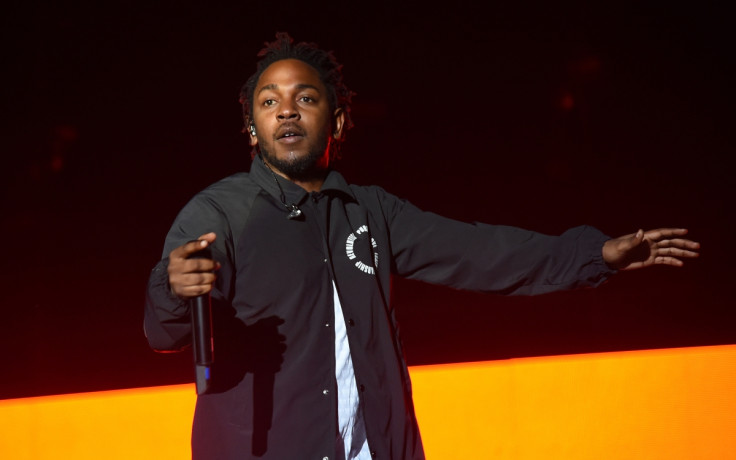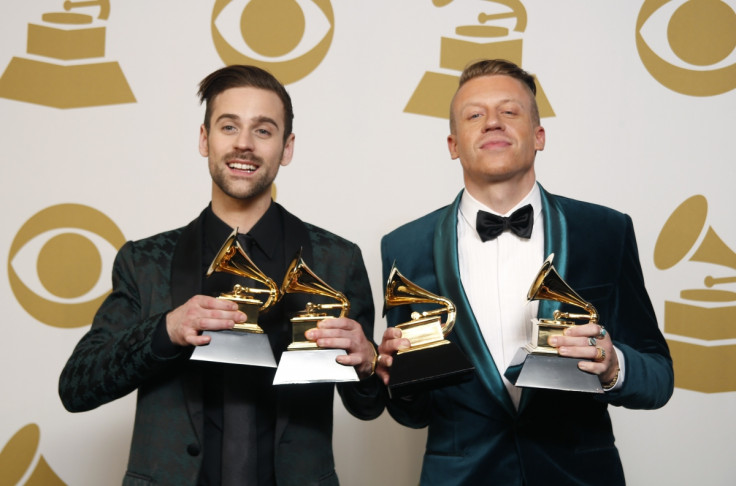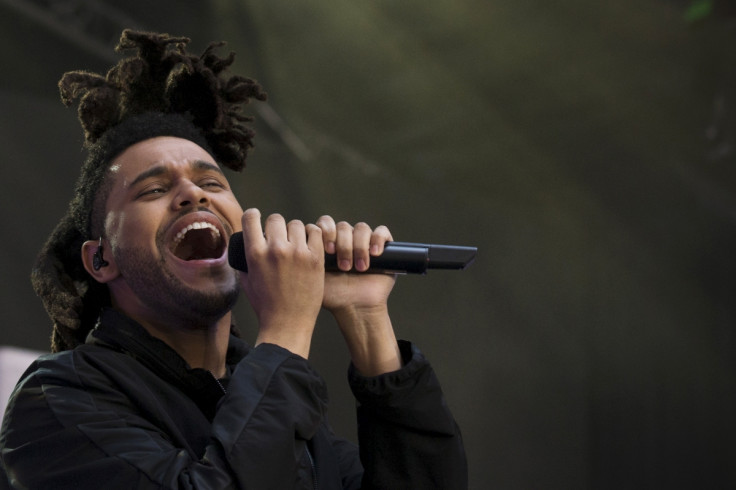Grammys 2016: Music's biggest night is not perfect but fortunately it's nothing like the Oscars

Since early January, Hollywood has been locked in an incredibly heated and often times uncomfortable debate about the lack of diversity amongst the Oscars 2016 nominees. It is a conversation that was a long time coming and much needed to invoke change for what can only be described as an outdated system. However as "music's biggest night" approaches – the Grammys 2016 – it can't be ignored that the current unrest in the movie world is entirely unparalleled to the relative calm in the music industry. Does that mean the Grammys are more inclusive than the Oscars?
The Grammys are often described as "the Oscars of the music world", which is a fair assessment in regards to the prestigiousness of the awards. But this year, Kendrick Lamar, The Weeknd, D'Angelo and Bruno Mars are among the black people nominated in three of the Grammy's four main categories – record of the year, song of the year and album of the year, whereas the Oscars have, well, zero black actors nominated in their top categories. The comparison between the two awards is far between.
But that is not to say that the Grammy's are perfect and without flaws. Kendrick Lamar, the finest rapper to emerge from Compton in the last five years, may now have surpassed Eminem by landing 11 nominations in one year at the 2016 awards, but fans will never forget the travesty that took place two years prior. In 2014, sheer outrage ensued when Lamar, 28, lost out to Macklemore & Ryan Lewis in almost every rap category in which they were both nominated.

Macklemore & Ryan Lewis, who are white and have opened a discussion on white privilege, triumphed in the best rap performance, best rap song and best new artist categories but the biggest snub was their win for best rap album, trumping Lamar's nomination for his critically acclaimed Good Kid, Maad City.
Lamar's second album was undeniably one of the greatest rap albums to emerge from the genre in recent years and earned him comparisons to lyrical legends such as Nas. Voters clearly felt Macklemore & Ryan Lewis's debut The Heist was more deserving of the rap accolade, but even Macklemore himself admitted he had "robbed" the Compton star of the award.
In a text message he sent to Lamar afterwards, Macklemore, 32, wrote: "You got robbed. I wanted you to win. You should have. It's weird and sucks that I robbed you. I was gonna say that during the speech. Then the music started playing during my speech and I froze. Anyway, you know what it is. Congrats on this year and your music. Appreciate you as an artist and a friend."
It speaks volumes when the winners themselves believe they are unworthy of the award when pitted against one of the most respected artists in rap. Did Macklemore & Ryan Lewis really win four Grammys because they are white? It's entirely possible although there could be another factor to play besides race. According to the official Grammys website, the awards aim to recognise the "artistic achievement, technical proficiency and overall excellence in the recording industry, without regard to album sales or chart position".
Watch Kanye West discuss Beck winning over Beyonce at the Grammys 2015:
Well, the disregard for album sales and chart positions are not exactly accurate as the majority of past nominees have either topped Billboard or reached a top 10 position. In fact, every single record nominated for album of the year at the 2016 Grammys landed at number one on the Billboard 200 chart, although Beck's Morning Phase, which won album of the year in 2014, only reached number three with that release. Still, it can't be denied that popularity is a major consideration for voters when deciding on the winners.
With Macklemore & Ryan Lewis in mind, another important question springs to the forefront: Will the Grammys always choose a white artist nominated in the rap and r'n'b categories over a black artist? History shows the awards do not necessarily discriminate in this area. Until 2011, hip hop legend Eminem won an award in almost every rap category he was nominated in but in 2006, he lost the best rap album accolade to Kanye West's Late Registration.
Perhaps supporting the idea that the Grammys award talent rather than sales figures is the fact that Eminem won best rap album over Iggy Azalea, a white rapper from Australia, in 2015, even though she dominated the airwaves the previous year.

Kanye West has been very outspoken in the argument over race at the Grammys. When Beck won album of the year over Beyoncé, West attempted to replicate the Taylor Swift incident at the MTV VMAs by walking on stage and pretending to interrupt as Beck accepted the award. Later speaking to E! News about his bold move, West explained: "The Grammys, if they want real artists to come back, they need to stop playing with us. We ain't gonna play with them no more... Beck needs to respect artistry and he should have given his award to Beyoncé."
He added: "And at this point, we tired of it because what happens is, when you keep on diminishing art, and not respecting the craft, and smacking people in the face after they deliver monumental feats of music, you're disrespectful to inspiration." But, of course, that's just West's opinion and he has a lot of them.

Certainly, there have been some pretty shocking snubs historically for black artists even in the rap categories – Tupac Shakur, Notorious BIG, NWA, Wu-Tang Clan and Public Enemy are just some of the hip hop acts who have never won a Grammy, despite being among the most celebrated rappers in history. Snubs like this have called into question the voting process of the nominations. A number of experts within the music industry are invited to nominate in up to 20 categories but according to Rob Kenner, a reporter for Complex and a member of the Recording Academy voting committee, a major flaw lies within the voting process.
He writes: "Bottom line: the vast majority of the nominations are chosen by people who have little real expertise in a given field." In other words, the voters may be huge fans of rock but have no interest or knowledge of rap, for example.
The ratio of gender, sexuality and ethnic origin of Grammys voters have not been disclosed publicly but when compared to the Oscars, which reportedly consists mainly of older white men, it surely can not be as unbalanced. With the likes of Kendrick Lamar and The Weeknd leading the charge for black artists at the Grammys 2016, the tides of change may finally be upon us for the biggest night in music's calendar.
© Copyright IBTimes 2025. All rights reserved.






















